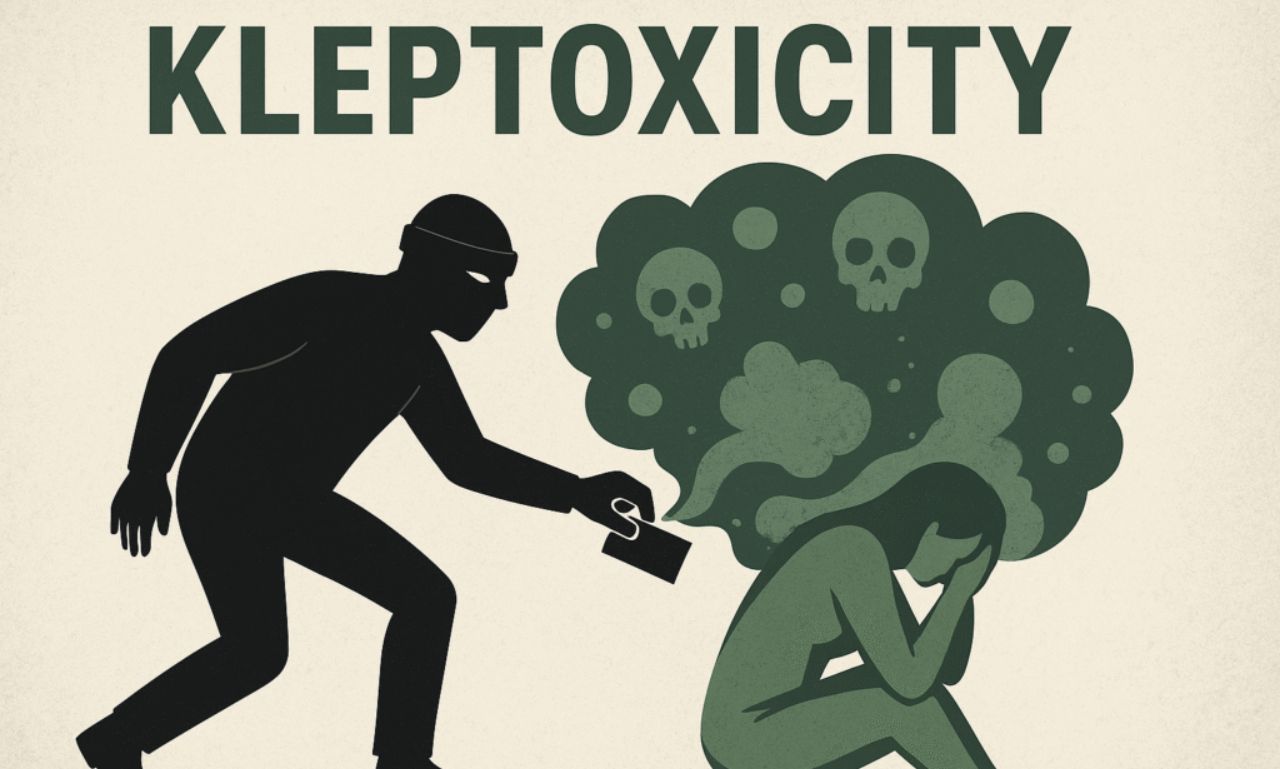Kleptotoxicity might sound like a term straight out of a science fiction novel, but it’s very real and affects countless organisms in nature. Imagine toxins sneaking into your system, not just to harm you directly but also stealing the essential nutrients that keep you healthy and thriving. This silent thief operates behind the scenes, disrupting ecosystems and altering food webs.
As we dive deeper into this fascinating phenomenon, you’ll uncover how these insidious substances interact with vital nutrients. From our environment to our bodies, kleptotoxicity reveals an unseen struggle for survival—one that has significant implications for both wildlife and human health. Prepare to explore the complex dance between toxins and nutrition as we unravel the mysteries of kleptotoxicity!
The Relationship between Toxins and Nutrients
Toxins and nutrients share a complicated relationship within ecosystems. While nutrients are essential for growth, development, and overall health, toxins can disrupt these vital processes.
Many organisms rely on a delicate balance of nutrients to thrive. When toxins infiltrate their environments, this balance is thrown off. Instead of absorbing necessary elements like vitamins and minerals, the organism may become overwhelmed by harmful substances.
These toxic agents can mimic or interfere with nutrient absorption pathways. As a result, an organism might struggle to extract energy from its food or synthesize critical compounds needed for survival.
In essence, while we often think of nutrients as beneficial players in biology’s grand game, toxins act as formidable opponents that can thwart even the healthiest systems. Understanding this dynamic opens new avenues for research into ecological health and resilience strategies.
Common Toxins that Cause Kleptotoxicity
Kleptotoxicity is often triggered by a variety of environmental toxins that undermine the nutritional balance in organisms. Heavy metals like lead and mercury frequently top this list. They disrupt cellular functions, leading to nutrient depletion.
Pesticides are another significant concern. Compounds such as organophosphates interfere with metabolic processes, affecting an organism’s ability to absorb essential vitamins and minerals.
Microcystins, produced by harmful algal blooms, also play a critical role in kleptotoxicity. These toxins can damage liver cells, impairing nutrient absorption at a cellular level.
Even commonly used substances like plasticizers can contribute to this issue. Chemicals such as bisphenol A (BPA) may mimic hormones and create imbalances that affect how nutrients are utilized within the body.
Understanding these common culprits is crucial for addressing kleptotoxicity effectively in both ecosystems and human health scenarios.
Effects of Kleptotoxicity on Organisms
Kleptotoxicity can have severe impacts on organisms, disrupting their ability to thrive. When toxins invade, the balance of essential nutrients is thrown off. Vital elements like vitamins and minerals become less available.
Many species exhibit weakened immune responses as a result. This vulnerability makes them more susceptible to diseases and infections. Predators that rely on these compromised prey may experience an indirect impact too.
Growth rates often decline under kleptotoxic conditions. Reproduction might suffer, leading to reduced populations over time. In ecosystems where every link matters, such changes ripple through food webs.
Behavioral alterations can also occur in affected organisms. They may alter foraging habits or seek refuge in different habitats—actions driven by the necessity to avoid toxic influences.
Such transformations challenge survival strategies across diverse biological communities. The ramifications of kleptotoxicity extend far beyond individual health; they shape entire ecosystems in profound ways.
How to Combat Kleptotoxicity
Combatting kleptotoxicity requires a multi-faceted approach. First, enhancing environmental awareness plays a crucial role. Educating communities about the impacts of toxins helps foster better practices.
Next, promoting biodiversity can bolster natural resistance to toxins. Diverse ecosystems are often healthier and more resilient against harmful substances.
Regular monitoring of toxin levels in various habitats is essential too. This allows for early detection and targeted interventions before severe damage occurs.
Using bioremediation techniques can also be effective. Certain plants and microorganisms have the ability to absorb or break down toxins, restoring balance to affected areas.
Advocating for stricter regulations on industrial waste will help minimize toxic releases into ecosystems. Active participation from local organizations ensures that these efforts gain traction in decision-making processes.
Case Studies: Examples of Kleptotoxicity in Nature
Kleptotoxicity manifests in various fascinating ways throughout the natural world. One striking example involves certain species of marine algae that produce potent toxins. These toxins can inhibit the absorption of essential nutrients in neighboring organisms, leading to a cascading effect on local ecosystems.
In freshwater environments, toxic cyanobacteria release metabolites that impair nutrient uptake in fish and amphibians. This disruption not only affects individual health but also threatens entire food webs.
Another compelling case is observed among some mollusks that accumulate harmful phytoplankton loaded with neurotoxins. When these mollusks are consumed by predators, they inadvertently transfer these toxins, affecting nutrient metabolism in their new hosts.
Such examples highlight the intricate relationships between organisms and underscore how kleptotoxicity shapes ecological dynamics across diverse habitats. Each instance reveals a layer of complexity within nature’s web, emphasizing the need for further investigation into this intriguing phenomenon.
Conclusion: Importance of Addressing the Issue of Kleptotoxicity
Addressing the issue of kleptotoxicity is crucial for the health of ecosystems and organisms alike. As we learn more about how toxins affect nutrient absorption, it becomes clear that these interactions have far-reaching consequences. The depletion of vital nutrients can lead to weakened immune systems in various species, making them more susceptible to diseases.
Recognizing the common culprits behind kleptotoxicity allows scientists and conservationists to target solutions effectively. By promoting awareness, conducting further research, and implementing preventive measures, we can mitigate its impact on both wildlife and human health.
The ripple effects of this phenomenon extend beyond individual organisms. They touch entire food webs and ecological balances. Therefore, understanding kleptotoxicity should be a priority for environmental advocates and policymakers alike. Together, we can work towards safeguarding our planet from the hidden dangers posed by harmful toxins that steal away essential nutrients from living beings.

